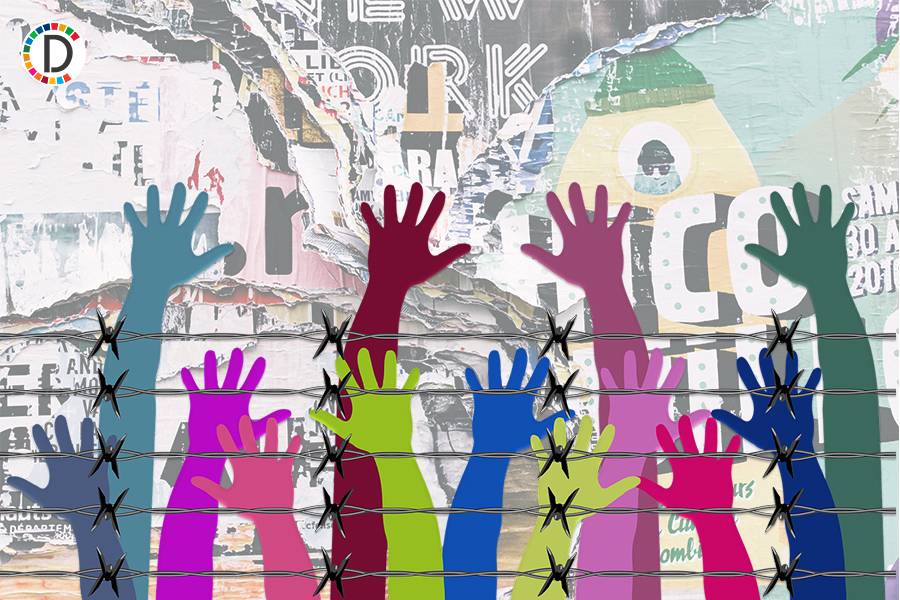Ecuadoreans vote for president as voters lean toward socialism
The elections council is expected to release an official quick count between 7 p.m. and 8 p.m. EST. An exit poll by local pollster Clima Social showed Arauz with 36.2% of the vote compared with 21.7% for Lasso and 16.7% for Perez.
Reuters | Updated: 08-02-2021 04:04 IST | Created: 08-02-2021 04:04 IST
Ecuadoreans voted for president on Sunday amid weariness over painful economic austerity measures, pushing left-wing candidate Andres Arauz into the lead on promises of a return to socialism. The 36-year-old economist, a protege of former president Rafael Correa, leads in polls on promises to make $1 billion in direct cash payments to families and to disavow the conditions of a $6.5 billion IMF financing package.
His main rival, Guillermo Lasso, has been hurt by his image as a conservative banker, and pollsters say the possibility of low voter turnout due to the pandemic could dent his support. Lawyer and indigenous activist Yaku Perez is third in the polls. An Arauz victory would extend Latin America's return to leftist policies, already evident in Argentina and Bolivia, a challenge for Washington as it duels with China for influence in the hemisphere.
"The response of citizens has been overwhelming all over the country, and we know that this will be reflected in the vote," Arauz said in Quito, where he accompanied his 106-year-old grandmother Flor Galarza as she voted. Polls closed at 5 p.m. EST. The elections council is expected to release an official quick count between 7 p.m. and 8 p.m. EST.
An exit poll by local pollster Clima Social showed Arauz with 36.2% of the vote compared with 21.7% for Lasso and 16.7% for Perez. A second poll by Cedatos shows Arauz with 34.9% of the vote compared with 21.0% for Lasso and 18.0% for Perez. To win in a single round, Arauz needs more than 50% of valid votes, or 40% total with 10 percentage points more than the runner-up.
Arauz did not cast his ballot in Sunday's election because he is registered to vote in Mexico, where he was studying to get doctorate in economics but abruptly quit the program to run for president. A brutal coronavirus outbreak last year left bodies uncollected on the streets of Ecuador's largest city, Guayaquil. Lockdowns around the world slashed fuel demand and prices for oil, Ecuador's main export, battering an economy also reeling from sharp cuts to government spending.
President Lenin Moreno, a former Correa ally, drove a pro-market agenda on hopes of reviving a sluggish and heavily indebted economy. His efforts sparked an angry backlash, with 10 days of violent street protests in 2019 against a planned fuel price hike. Financial markets are watching, and Arauz's rhetoric has already sparked a bond selloff.
He has said he will continue paying the country's debts, but has said social investment will take priority and also has called for an investigation of last year's $17.4 billion bond restructuring. Last month, Ecuadorean bonds were the worst performers among the JPMorgan EMBI Global Diversified index, with a -15% total return.
Perez, third in opinion polls, is running on an anti-mining platform, vowing to protect watersheds from pollution. Also, the city of Cuenca will vote in a referendum on whether to ban mining around any of the rivers that go through the city. This could spook mining companies already contending with opposition from indigenous activists.
(This story has not been edited by Devdiscourse staff and is auto-generated from a syndicated feed.)
ALSO READ
Mexico's ambassador to Bolivia returns to La Paz following 2019 diplomatic spat
Russia flies more Sputnik V vaccine to Argentina, first doses reach Bolivia
Bolivian doctors demand lockdown as COVID surge threatens health service 'collapse'
Bolivia expects 1 million COVID-19 vaccine doses in February
Russia flies planeload of Sputnik V vaccine to Argentina and Bolivia

